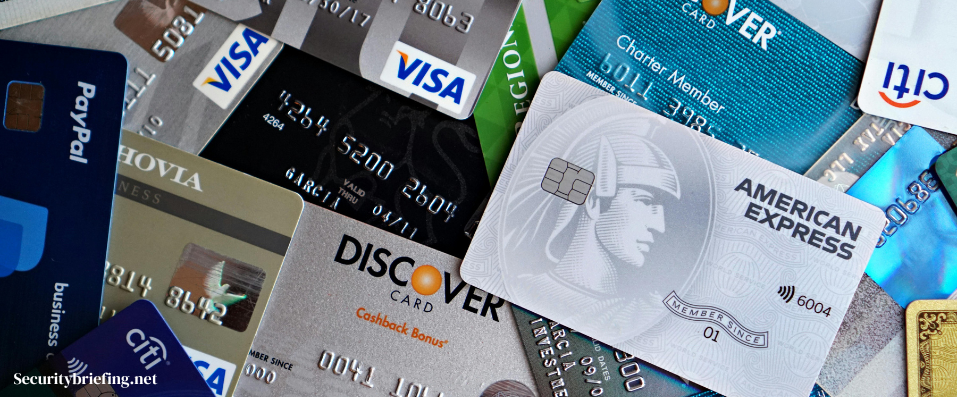PayPal vs. Apple Pay: Which Is Safer for College Students?
September 19, 2025 • César Daniel Barreto

Your phone buzzes in the middle of a lecture – someone’s asking you to send your share of last night’s pizza. You open your payment app and pause. Is PayPal the safer choice, or should you go with Apple Pay?
This isn’t a small decision. It’s your bank info, your tuition money, your part-time paycheck. And when you’re already digging through essaypro.com reviews to avoid sketchy services, you don’t need your payment app making life riskier.
The good news? You don’t have to guess. Let’s break down which tool gives you stronger protection without adding stress to your study routine.
What Matters Most in the Payment Process
Let’s start simple. When we talk about security in digital payments, what really counts is how well a platform makes sure you are actually you. That’s called authentication.
PayPal lets you turn on two-factor authentication. That means you log in with your password and also a one-time code from a text or app. Even if someone steals your password, they can’t break in without that code.
Apple Pay builds this step in by default. You can’t make a payment without Face ID, Touch ID, or your passcode. This stops anyone who grabs your phone from buying stuff in your name. If you’re a busy student, treat these small steps as a huge first line of defense.
Why Apple Pay and PayPal Handle Encryption and Privacy Differently
College life is a mess of open Wi-Fi, shared laptops, and random logins. That’s why encryption matters. It scrambles your data during a transaction so hackers can’t read it.
Apple Pay goes even further. It uses tokenization, which means it never sends your real card number. Instead, it sends a fake token that only your bank can match to your account. Even if someone intercepts it, it’s useless.
PayPal also hides your card details from stores. Merchants see your PayPal account, not your bank info. So, both platforms protect your details when you’re buying late-night snacks or renting e-books online.
Common Threats and How Each Platform Handles Them
Even good security has to survive real-world chaos – lost phones, phishing emails, or malware on public computers. Here’s how both services handle that.
- Phishing: PayPal monitors logins and flags strange activity. It can freeze your account fast if something looks off.
- Lost devices: Apple Pay automatically blocks payments if you lose your phone. You can also erase it remotely with Find My.
- Malware: Both apps work in “sandboxed” spaces. That means other apps can’t easily sneak in to steal your data.
The trend toward stronger security is clear – a report on how instant payment platforms are shaping digital security shows how these systems are pushing providers like PayPal and Apple to step up protections.
How Digital Payments Security Controls Protect Students
Here’s how the security controls of each service stack up side by side.
| Feature | PayPal | Apple Pay |
| Login protection | Two-factor authentication with SMS or app codes | Face ID, Touch ID, or passcode |
| Data safety | Encrypts transactions | Encrypts and tokenizes card data |
| Card number sharing | Hidden from merchants | Never shared; replaced with a token |
| Lost device response | Freeze account and reset password | Disable Apple Pay remotely |
All of this matters when you’re studying on the go. One forgotten phone at a party shouldn’t wipe out your savings.

Which One Is Safer Overall for College Students?
So, who wins? Honestly, both are strong, but in different ways.
Apple Pay has the edge if you already use an iPhone or Apple Watch. It locks your data deep in your device’s hardware. Your real card number never leaves your phone, and you can shut it down remotely if it’s lost. It also keeps purchase details private, which adds another layer of protection.
PayPal is better when you need flexibility. It works on nearly any device, links to multiple banks, and has strong buyer protection. When a problem pops up, PayPal lets you file a dispute and often get refunded. Apple Pay doesn’t handle that part, so you’d need to work it out with your bank.
The Federal Trade Commission notes in this overview that tokenization, encryption, and multi-factor authentication are among the best tools for preventing online fraud. That’s exactly the combo both services rely on.
So, if you mostly shop in apps or stores with your phone, Apple Pay is likely your best bet. If you buy from a lot of websites or send money between friends, PayPal might feel safer and more flexible.
Student Habits That Make or Break Security
Here’s the twist: even the safest platform won’t help if you use it carelessly. A few smart habits can boost the security of mobile payments and digital wallets way more than people expect:
- Use strong, unique passwords for your accounts.
- Always turn on two-factor authentication or biometrics.
- Avoid public Wi-Fi when paying for something.
- Keep your phone and apps updated.
These steps sound small, but they block the most common attacks students face.
What Is One Security Feature of Digital Payments You Should Always Look For?
If there’s one tip to hold onto, it’s this: pick payment apps that use multi-factor authentication. It blocks most break-in attempts, and even a stolen password won’t work without that extra code or face scan.
It’s simple, free, and powerful, especially for students managing tight budgets and busy lives.
Bottom Line
PayPal and Apple Pay are both strong choices for college students, but they shine in different ways. PayPal offers broad access, great buyer protection, and works almost anywhere. Apple Pay offers deep privacy, hardware-based security, and quick remote control if your phone goes missing.
In practice, Apple Pay may be slightly safer if you’re fully in the Apple ecosystem, while PayPal fits better if you jump between devices and need more flexibility.
Either way, your own habits matter, too. Enable extra security steps, stay alert, and your money will stay safe while you focus on campus life.

César Daniel Barreto
César Daniel Barreto is an esteemed cybersecurity writer and expert, known for his in-depth knowledge and ability to simplify complex cyber security topics. With extensive experience in network security and data protection, he regularly contributes insightful articles and analysis on the latest cybersecurity trends, educating both professionals and the public.